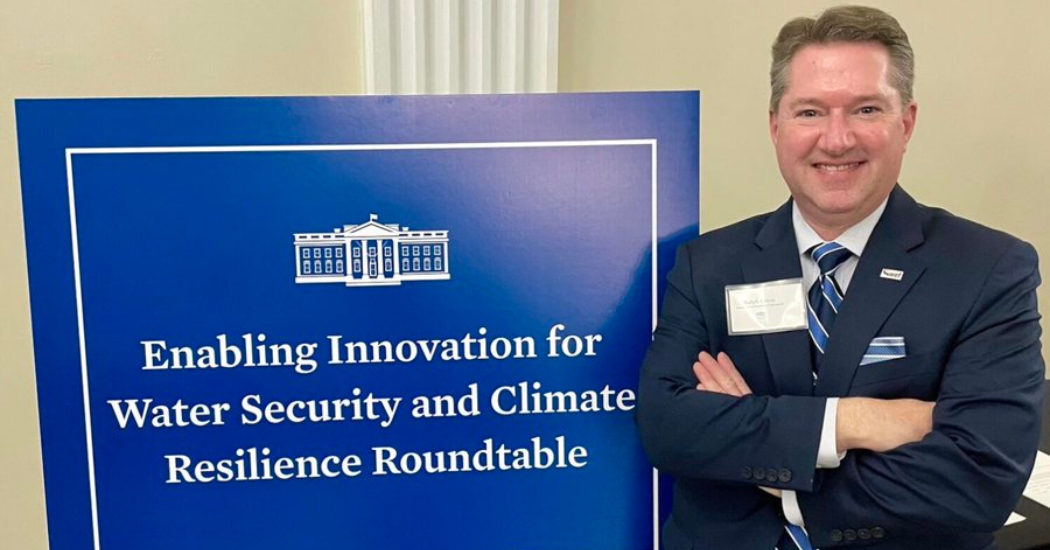The Water Environment Federation (WEF) joined other national leaders at the White House Roundtable on Water Security and Climate Resilience, on Oct. 31, 2024. As a water-sector representative, WEF had the unique opportunity to highlight its commitment to building a more sustainable and resilient water future.
Ralph Exton, WEF’s executive director, stressed the importance of moving toward a circular water economy – an approach that makes the most of every drop by reusing water, reducing waste, and turning byproducts into valuable resources. This shift is essential to ensure that America’s homes, agriculture, and industries have a dependable water supply, especially as we face intensifying climate pressures.
Exton also emphasized WEF’s ongoing commitment to promoting innovative conservation technologies, as well as the importance of redefining the economics of water to drive conservation and resilience. In particular, WEF advocated for policy changes to provide targeted incentives for water conservation technologies, including grants, low-interest loans, and tax incentives.
“Innovative funding approaches are essential,” Exton noted. “The estimated $1.25 trillion investment needed over the next 20 years calls for a sustainable economic model to support the future of our water infrastructure.
“By advocating for better funding mechanisms, economic incentives, and supportive policies, WEF is helping create a path for meaningful conservation and innovation across the sector,” he continued. “It was a powerful moment of collaboration, and I’m proud of how our work positions WEF as a leader in this crucial conversation.”
WEF also focused attention on the need to build a skilled and diverse water workforce to tackle future challenges by attracting workers with varied talents and experiences, investing in skills training, and establishing standardized career pathways for the sector. Through expanded workforce training and data-driven management practices, WEF seeks to empower communities and industries, enhancing water efficiency and resilience.
“WEF’s participation in this roundtable reflects our dedication to addressing water security through collaboration, innovation, and community engagement,” said Exton. “By prioritizing a circular water economy and workforce development, we can help secure our nation’s water future for generations to come.”
Opportunities for the Adoption of Water Conservation Technologies and Practices




